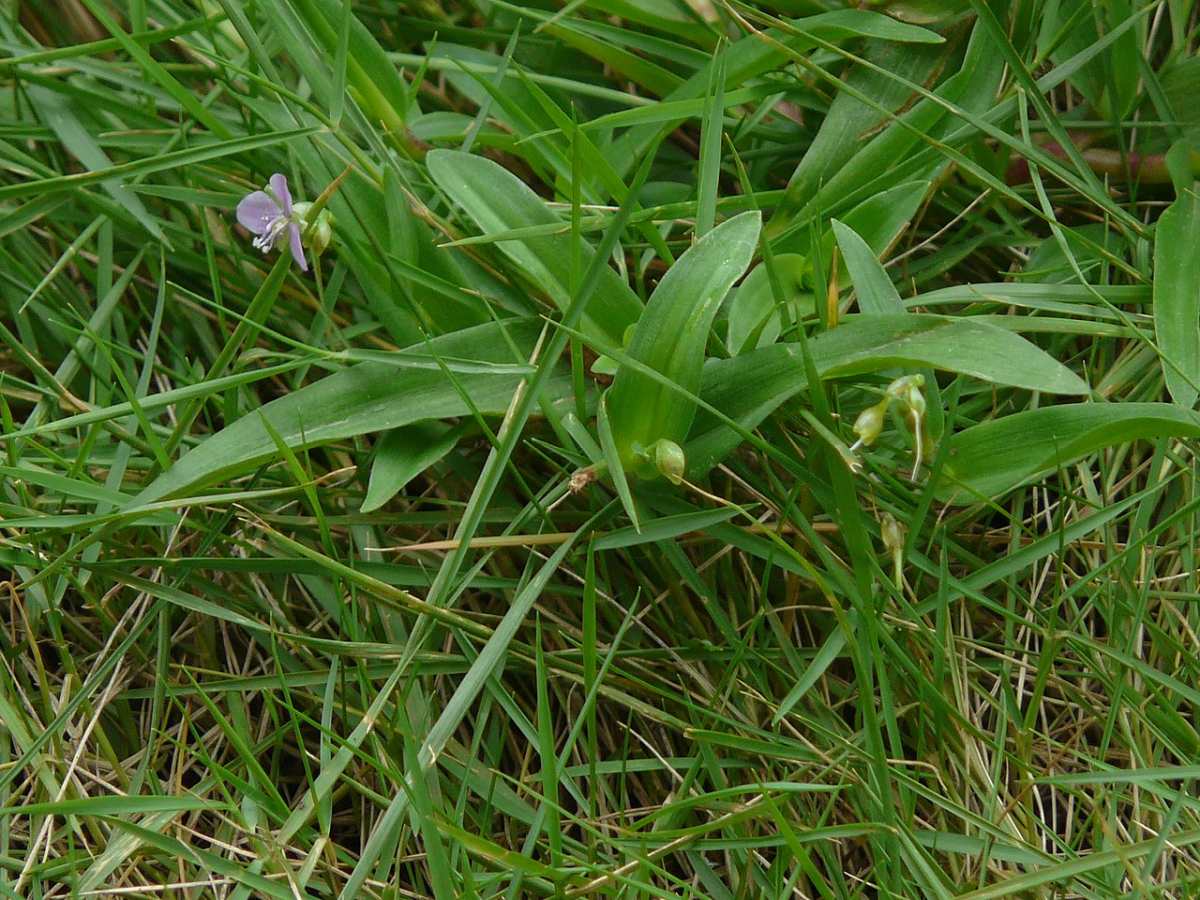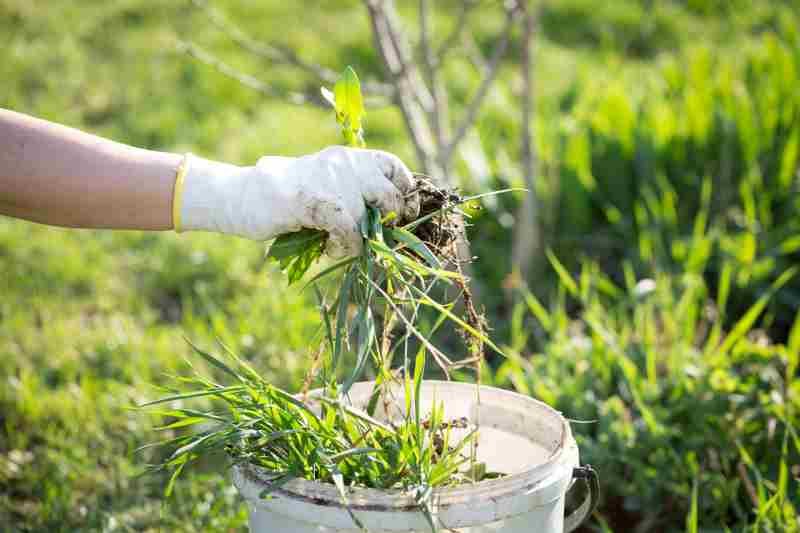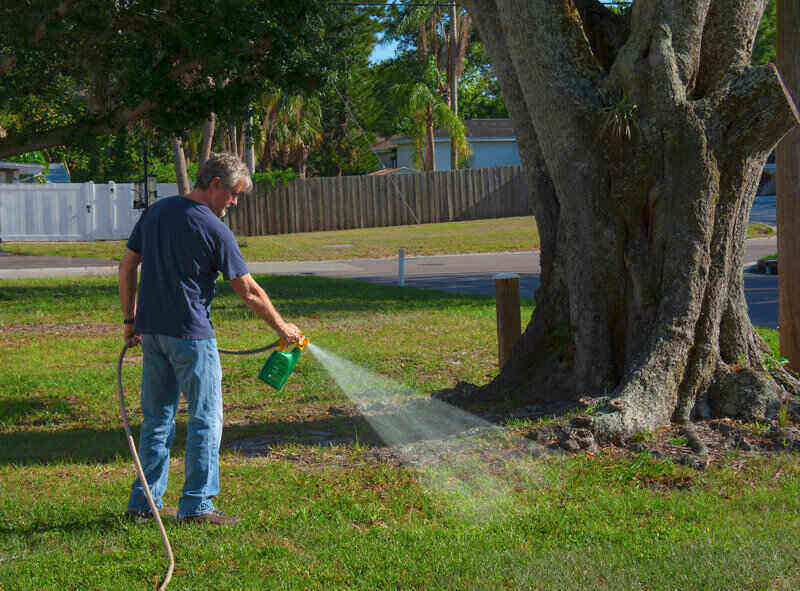
Seeing doves in your lawn is a wonderful thing, but doveweed not so much. Knowing how to get rid of doveweed in your lawn can help you save your landscape should it take root.
Doveweed can spread and take over your lawn, so for the sake of your grass, it’s important to quickly remove it with either hand weeding or herbicides.
How to Remove Doveweed
After you’ve identified doveweed in your lawn, the next step is to get rid of it. You have two options when it comes to weed control; natural and chemical methods. Natural methods are the preferred option since they do the least harm to your lawn and garden plants, but chemical methods are a good fallback in case they fail.
To learn more about weed control, read our article, “How to Get Rid of Stubborn Weeds in Your Grass.”
Here’s some more info on both natural and chemical methods for controlling doveweed:
Hand Weeding

Unfortunately, natural methods for controlling doveweed aren’t plentiful. Your only real option is hand weeding. Whenever you find doveweed, pull it straight out of the ground by the roots. You can also dig up doveweed with hand tools.
Once you’ve dug up doveweed, you can dispose of it like any other yard waste. Do not try to use doveweed for compost unless you have a hot composter. Doveweed spreads by stolons, so broken pieces of the plant can take root and grow inside the composter unless your composter gets hot enough to kill the plant.
It’s unlikely you’ll be able to get rid of a doveweed infestation solely using natural methods. In all likelihood, you’ll need to combine hand weeding with post-emergent herbicide.
Post-Emergent Herbicides

The most effective option when dealing with doveweed is a post-emergent herbicide. There are a few different options to choose from, but you have to be careful when picking one. Otherwise, you can harm your lawn and garden plants. A selective herbicide will kill the weeds without harming your lawn or other plants.
The best selective herbicides to kill doveweed are:
- Atrazine (Only use on St. Augustinegrass and Centipedegrass lawns)
- Celsius WG
- A combination of 2,4-D, Dicamba, and Mecoprop
As a last resort, you can try a non-targeting herbicide like glyphosate. However, the emphasis there is last resort. Glyphosate and other non-targeting herbicides kill everything, which means that they will also kill the grass and plants around the doveweed.
To protect your lawn while using non-targeting herbicides, cover the edges of where you’re spraying with cardboard. You should also cover any garden plants nearby. Covering your lawn and garden will protect them from the glyphosate.
When using any herbicide, always ensure you follow the directions for safe use. You also need to wear protective clothing, including gloves, long sleeves and pants, and eye and breathing protection.
For more information on chemical control, read our article, “Types of Post-Emergent Herbicides.”
FAQ About Doveweed
Why does doveweed keep coming back?
If you have a recurring doveweed problem, it’s possible that you’re not getting the whole infestation with your removal efforts. Since doveweed looks very similar to grass, there could be sections you’re missing. Look carefully and see if there’s more you’re not addressing.
Additionally, not all doveweed seeds will sprout right away. The seeds can lay dormant in the soil and spring up next year. If you keep seeing doveweed come back every year, it’s likely that the plants are laying down seeds before you get to them, in which case you’ll need a pre-emergent herbicide.
How long do doveweed seeds last in soil?
Left alone, unless killed by an herbicide, doveweed seeds can lay dormant for several years. The exact lifespan is difficult to pin down, but if you see doveweed growing in your lawn, you can likely expect the seeds to last for at least three years.
Will animals eat doveweed?
No. Doveweed is not very attractive to most wild or domestic animals. Even goats, famous for their ravenous appetites and iron stomachs, won’t touch doveweed. The only animals that eat doveweed are birds, and even they only eat the seeds, not the plant itself.
Find Your Lawn Experts
Removing doveweed is important for the sake of your lawn and garden plants. If you see it pop up in your landscape, knowing what to do beforehand can save you a lot of time and headache.
If you need lawn help, contact lawn care pros near you. They can mow your lawn for you and keep your landscape weed-free so that you have more time to enjoy it.
Main Photo Credit: Dinesh Valke from Thane, India / Wikimedia Commons / CC BY-SA 2.0